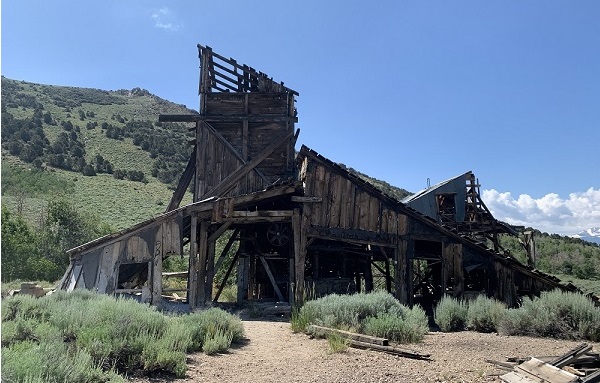
The Legacy of Man

Nothing lasts forever. Eventually, the lease Homo sapiens has on the planet Earth will end. Maybe we will abandon Earth for the stars, or maybe we will go extinct entirely. But what mark will we leave?
Human constructions have variable lifespans. Wooden houses are unlikely to survive far beyond 50 years, except in dry, stable environments such as deserts. Larger structures made of steel and concrete are estimated to have lifespans of 100 to 500 years before they corrode and collapse. Eventually, all human-used land will be reclaimed by nature. The longest-surviving structures will be made of stone: the Great Pyramid of Giza, the Great Wall of China, and many other stone ruins may last for millions of years.
A few materials humans have made will last for a long time after we are gone. Plastics may take hundreds or even thousands of years to biodegrade, and the microscopic compounds they are made of could last even longer. Plastics may last long enough to become fossilized, and over time the earth could even compress fossilized plastics into new oil deposits. Ceramics and metals such as stainless steel, bronze and copper are effectively indestructible at a chemical level, and these will likely also fossilize.
Our footprints may last longer in space than on Earth. Space has none of the factors that cause human constructs to degrade on Earth, with the only risks being space dust, gravity, and the rare chance of an impact. Neil Armstrong's footprints on the moon may last for hundreds of thousands of years before being eroded by impacting objects. The Voyager probes will continue into space for millions of years, carrying their golden records through reaches of space we can barely fathom.
Ultimately the longest-lasting remnants of humanity on Earth will be biological. Human bones will certainly fossilize, and these fossils will last buried in rock for hundreds of millions of years. Humanity's impact on evolution may be perhaps its strongest legacy. The impact we have had on the planet has changed the course of evolution, as some species thrive and others go extinct. Thanks to us, some species will have new evolutionary opportunities they would have never achieved otherwise; for others, their evolutionary journey is over. We do not know exactly how we will impact future evolution, but it will undoubtedly be remarkable.
For further reading on the impact humans will leave on Earth's future, check out The World Without Us by Alan Weisman, The Earth After Us by Jan Salaciewicz, or Footprints: In Search of Future Fossils by David Farrier.